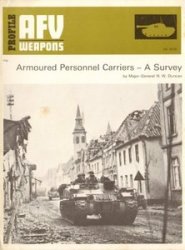Impregnable wall of defence, so France had the much-vaunted Maginot line. It took nine years to construct the frontier defences, brainchild of French minister Andre Maginot. The network of towers and tunnels was remarkable enough in itself. Had the Germans attacked it directly, it might have served its purpose well, albeit that it stretched only as far as the Belgian border, and not beyond it.
This war, however, was going to be different to the first international conflict. Static trench warfare, which had claimed so many lives, was now an outdated concept - yet France and
Britain didn’t realise it. When Hitler invaded Poland in September 1939, he unleashed a new and frightening brand of warfare into the world - called ‘Blitzkrieg’.
First to feel the heat of this ‘lightning war’, Poland lurched back in helpless horror when the German army crossed it borders at dawn on 1 September 1939. It took only a few hours for the invading force to quell


Left: German soldiers survey the results of their fast-moving campaign in Poland. Top: Britain was braced for attack months before it actually came.
Above: Germany used its tanks to thrust ahead during the Blitzkrieg it unleashed with great success against Poland, France and the Low Countries.

Polish defences. As the German troops and tanks rolled through the Polish countryside, the country’s major cities were being bombed by the Luftwaffe and its ports were shelled by German ships.
Key to the success of Blitzkrieg was the use of tanks in large numbers and innovative style - they were still thought by Britain and France to be valid only as infantry support. The Panzer forces charged ahead independent of the troops, and wreaked havoc among defenders. Bursting through defensive lines, they harried the Poles from the rear, creating confusion and smashing supply lines.
The German air force had! e much aiding Franco d nu Spanish Givil War, \ h * t u in ¦May 1939. Now pilots were putting this knowledge to good use and after a month Poland capitulated.

Poland’s capital Warsaw held out for a few weeks longer than the rest of the country against the Third Reich. Heavy bombardment turned this once-grand city to rubble. As it surrendered, the Germans were triumphant. The hated Treaty of Versailles, which had condemned them to international servitude since 1919, was at last eradicated.
This time Britain and France refused to sit back and watch their ally being dismembered by Hitler. Both declared war on Germany almost immediately - although failed to do anything which would materially assist Poland - and braced themselves for the onslaught. Thankfully, it never came.
Despite the success of the Polish campaign, many German officers , "re concerned about taking on the
Might of the French army backed by Britain. Hitler was persuaded to abandon thoughts of an immediate push through the Low Countries into France, in favour of launching a spring campaign.
The reality of war was slow to strike home in Britain. When the feared air raids and gas attacks failed to materialise, there was an almost euphoric mood as people busied themselves sandbagging homes and putting up blackout screens in windows. Tbe casualties in road traffic accidents caused by tbe rigorously enforced blackout far exceeded those caused in the war. Phrases full of mock indignation like ‘put that light out’ and ‘don’t you know there’s a war on’ typified the bureaucracy pervading
Above: A French cottage is destroyed by advancing German troops, who put French and British defenders to flight.
The country. Joblessness stayed high, war production lamentably low. Reservists were being signed up for army duty surely but slowly, doing drills with bayonets and gas masks - and sometimes wooden ‘rifles’.
Nearly 200,000 soldiers in tbe British Expeditionary Force were sent to France where they dug in on the Belgian border. By now, Germany had mobilised six million men.
Hitler was concerned at the ease with which the British navy had managed to raid a German ship in Norwegian waters. On 9 April 1940 his troops moved into Denmark and Norway in what promised to be another short, sharp campaign.
Denmark was without an army and acquiesced the following day.
Norway, deeply anti-militarist by tradition, nevertheless put up a fight despite the evident popularity with which the Germans were greeted in some quarters. Churchill himself was looking at the possibility of occupying Norway to reap the rewards of its strategic position. The government would do no more than lay mines in Norwegian waters to disrupt a vital German supply line. In fact, the Royal Navy was doing just that when some of the invasion force from Germany sailed up. There was a skirmish in which some damage was inflicted on German ships. That was the only glimmer of optimism in what turned into an otherwise disastrous escapade.




 World History
World History









